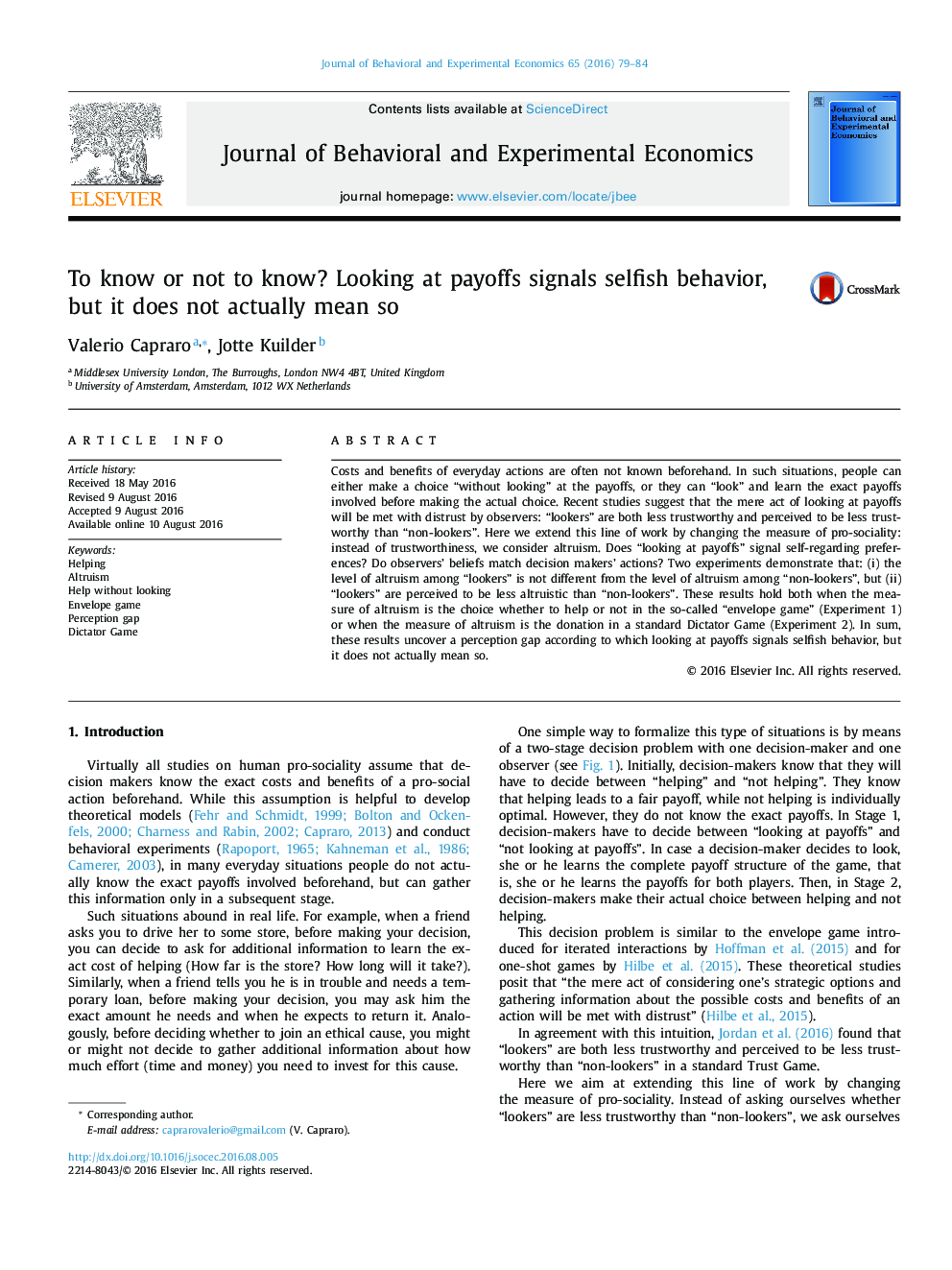| کد مقاله | کد نشریه | سال انتشار | مقاله انگلیسی | نسخه تمام متن |
|---|---|---|---|---|
| 5034164 | 1471549 | 2016 | 6 صفحه PDF | دانلود رایگان |
- Previous research shows that the mere act of considering one's strategic options (i.e., looking at payoffs) will be met with distrust by observers.
- Here we aim at extending this finding by changing the measure of pro-sociality: instead of trustworthiness, we look at altruism.
- Two experiments uncover a perception gap according to which looking at payoffs signals selfish behavior, but it does not actually mean so.
- Specifically, “lookers” are believed to be less altruist than “non-lookers”, but their actual level of altruism is not different from that of “non-lookers”.
Costs and benefits of everyday actions are often not known beforehand. In such situations, people can either make a choice “without looking” at the payoffs, or they can “look” and learn the exact payoffs involved before making the actual choice. Recent studies suggest that the mere act of looking at payoffs will be met with distrust by observers: “lookers” are both less trustworthy and perceived to be less trustworthy than “non-lookers”. Here we extend this line of work by changing the measure of pro-sociality: instead of trustworthiness, we consider altruism. Does “looking at payoffs” signal self-regarding preferences? Do observers' beliefs match decision makers' actions? Two experiments demonstrate that: (i) the level of altruism among “lookers” is not different from the level of altruism among “non-lookers”, but (ii) “lookers” are perceived to be less altruistic than “non-lookers”. These results hold both when the measure of altruism is the choice whether to help or not in the so-called “envelope game” (Experiment 1) or when the measure of altruism is the donation in a standard Dictator Game (Experiment 2). In sum, these results uncover a perception gap according to which looking at payoffs signals selfish behavior, but it does not actually mean so.
Journal: Journal of Behavioral and Experimental Economics - Volume 65, December 2016, Pages 79-84
